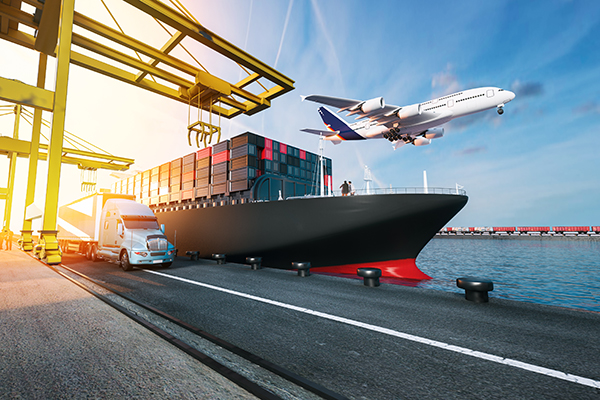Editor’s Note: Alycen Moss is a member of the law firm Cozen O'Connor. Alycen concentrates her practice in civil litigation and is the hiring partner for the firm's Atlanta office.
She has extensive experience with matters pertaining to property, casualty and trucking insurance, and regularly litigates civil and commercial matters pertaining to transportation and logistics.
Alycen was recently elected into the Federation of Defense and Corporate Counsel, an invitation only organization comprised of civil defense litigators, corporate counsel and insurance claims executives.
Event Data Recorders
Tommy Ruke, CIC, TRS, Founder of the Motor Carrier Insurance Education Foundation, says this is the #1 issue to watch in 2019. Equipping trucks with event recorders can provide vehicle-related information, monitor driver hours, and provide tracking information. This can ultimately reduce accidents and make the trucking operation more efficient.
Collision Mitigation Systems
According to Richard Bren, CPCU, CIC, TRS, Vice President of Insurance at PFA Transportation Insurance & Surety Services, collision mitigation systems are great tools when they are used properly. Although equipping a truck with a collision mitigation system can be expensive, Mr. Bren says that more trucking companies are installing them, especially as we see the technology improving so that there are less false activations.
Semi-Electric Trucks
There are more semi-electric vehicles on the road as the technology advances. These vehicles can decrease fuel costs, which will decrease operating costs. And the semi-electric trucks have the added benefit of advancing efforts to clean up the environment.
Automatic Transmissions
Mr. Ruke says we will see more companies buying trucks that have automatic transmissions. An automatic transmission takes away the distraction of manually shifting and uses less fuel, both of which are good things!
Self-Driving Trucks
There are currently self-driving trucks that are being tested in Arizona. Don't worry … these are manned vehicles that are using technology to help guide the truck! According to Mr. Bren, this technology is still developing, and it may be a long time before we see autonomous trucks on the road since the technology is expensive and there is still substantial testing that needs to be performed.
Planning pressures
There are more and more demands on the industry with the increase in online shopping … and everyone wants fast delivery! Mr. Bren says that, to stay in the game, trucking companies are trying to develop technology to keep up with the demand and think of ways to incentivise and encourage drivers to drive more.
Driver Shortage
Although expansion is happening in the transportation industry, the driving force is decreasing. The shortage of truck drivers has been rising in the last few years, and this problem is expected to continue into 2019 . According to Mr. Bren, this is because there is an aging driving force, and driving is a difficult occupation. Younger drivers are not choosing it due to the increased demands, such as the increased regulations on hours of service, unfriendly roads, and the balance of being away from home vs. driving. This shortage of drivers means that there will be fewer trucks on the road, which creates even more planning pressures.
Pressures on Insurers
We are closely watching a 3-fatality trucking accident in Indiana involving a truck with allegedly bad brakes. The plaintiffs sued the insurance company arguing that it knew the trucking company had a poor safety record. The Indiana Court of Appeals held that the insurance company had no role in the decision to put the vehicle on the road and could not foresee there might be an accident. The Indiana Supreme Court heard oral argument in 2018, and we are watching this case to see what the court says about the potential liability of an insurance company or broker.
Independent Contractor Issues
In New Prime, Inc. v. Oliveira, the United States Supreme Court recently considered whether Section 1 of the Federal Arbitration Act precluded enforcement of an arbitration agreement between a trucking company and a driver in which the driver was described as an independent contractor. It was anticipated the Court would rule on the classification of a transportation worker as an employee vs. an independent contractor; however, the Court ultimately did not make any distinction. Rather, the Court concluded that, as long as the worker is “engaged in foreign or interstate commerce,” then the employer cannot compel its workers to arbitrate. This ruling does not shut the door on future litigation, and it will be an important issue to watch as the classification of a driver as an employee can have vicarious liability implications.
Trucking Rates and Profitability
Transportation continues to be unprofitable, which is most likely due to the competition in the industry, increasing fuel costs, increase in driver pay, and increased expenses associated with technology upgrades. Additionally, accidents and litigation are negatively affecting profitability. According to Mr. Bren, although technology upgrades may be an expense now, they may also be the answer for increased profitability.
SC
MR


Latest Supply Chain News
Latest Podcast

 Explore
Explore
Business Management News
- Strengthening customer fulfillment: Building a strategic stakeholder network
- The hard job of teaching soft skills
- Trump picks former Wisconsin congressman Sean Duffy for DOT secretary
- Made in Mexico, manufactured by China
- Retail sales see gains in October, reports Commerce and NRF
- Balancing green and speed: Home delivery insights from the pandemic era
- More Business Management
Latest Business Management Resources

Subscribe

Supply Chain Management Review delivers the best industry content.

Editors’ Picks




